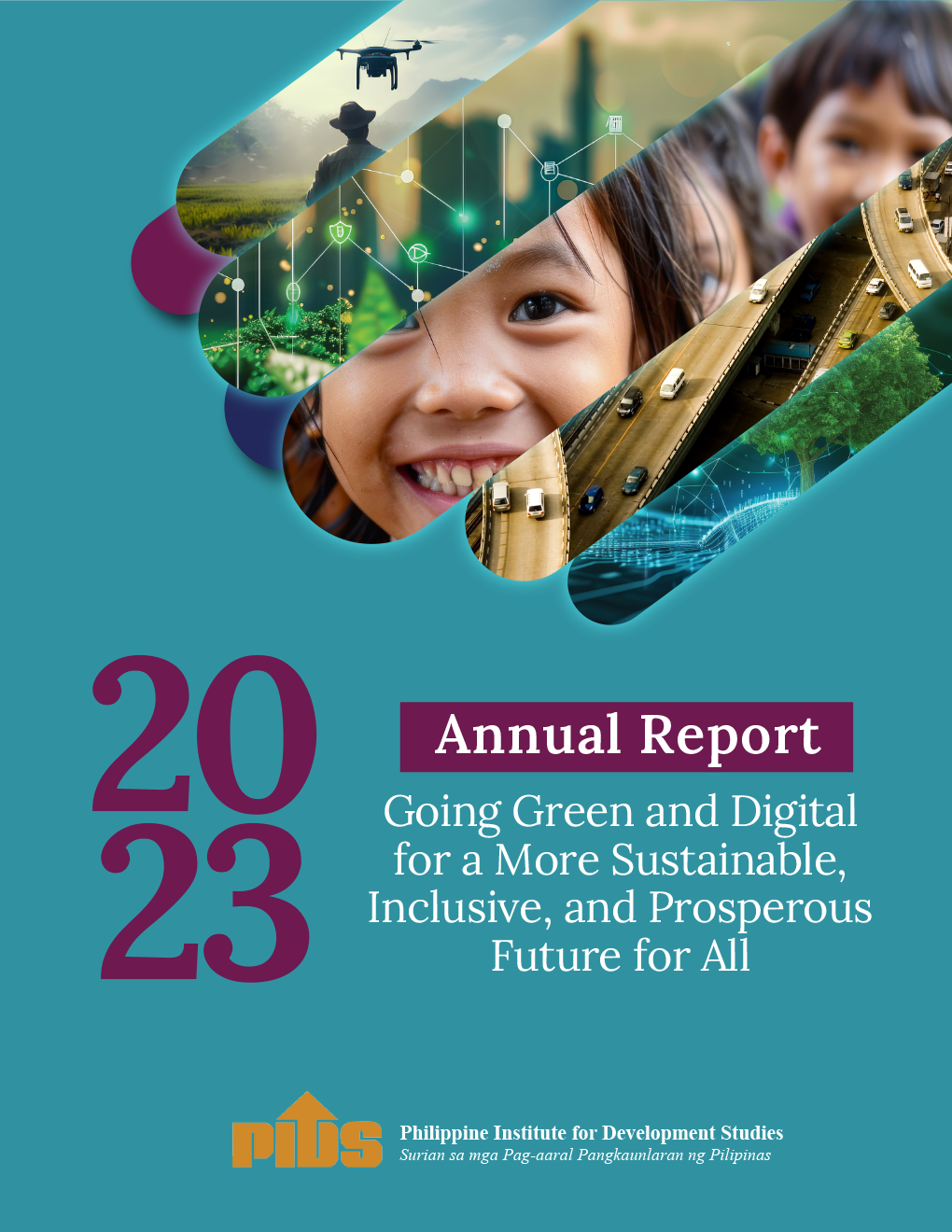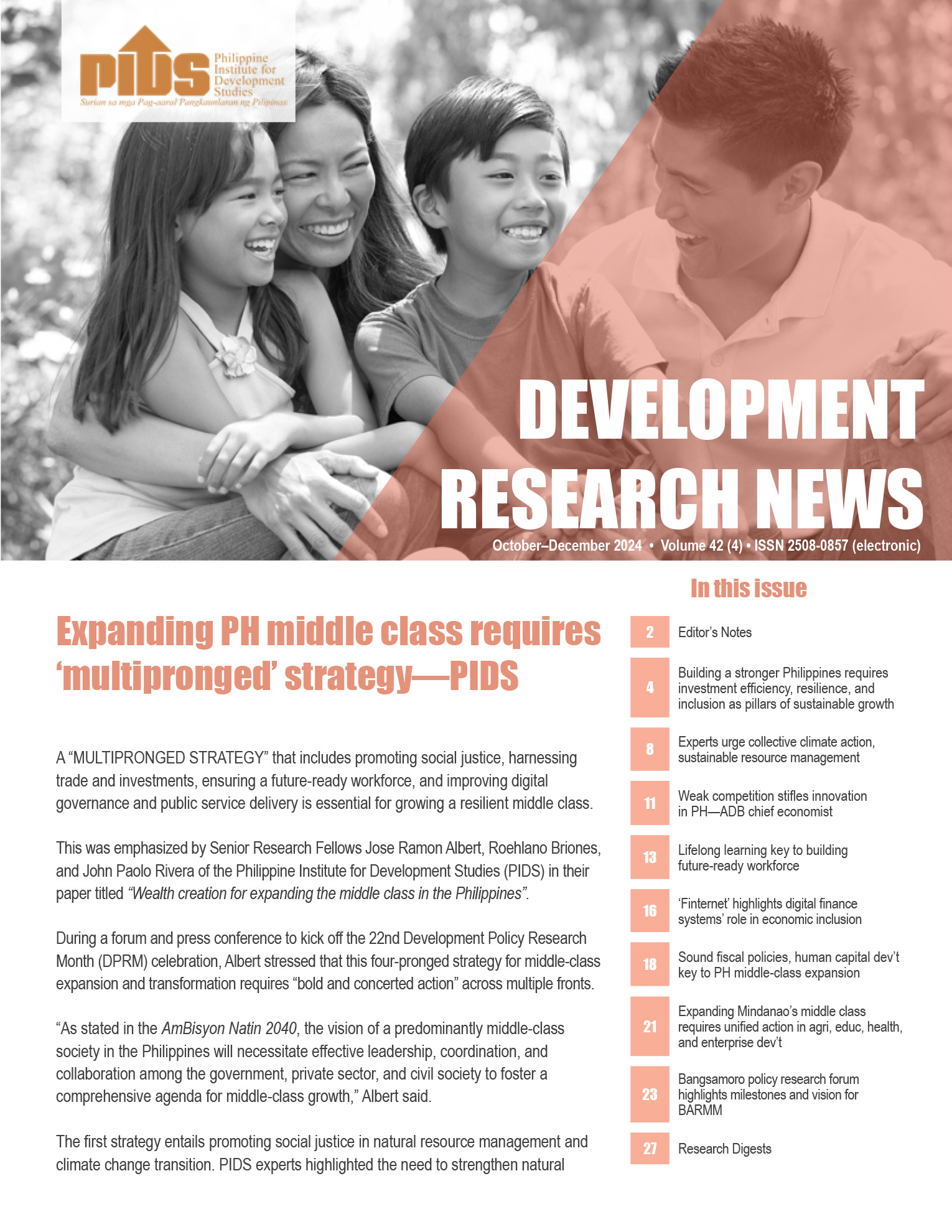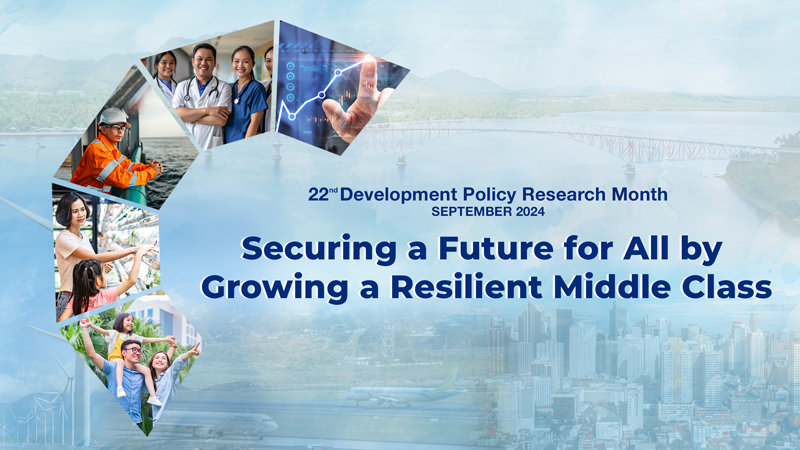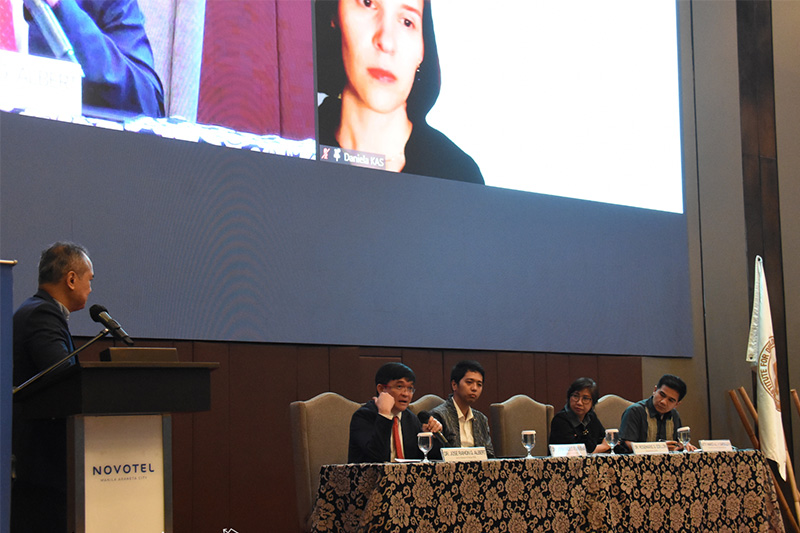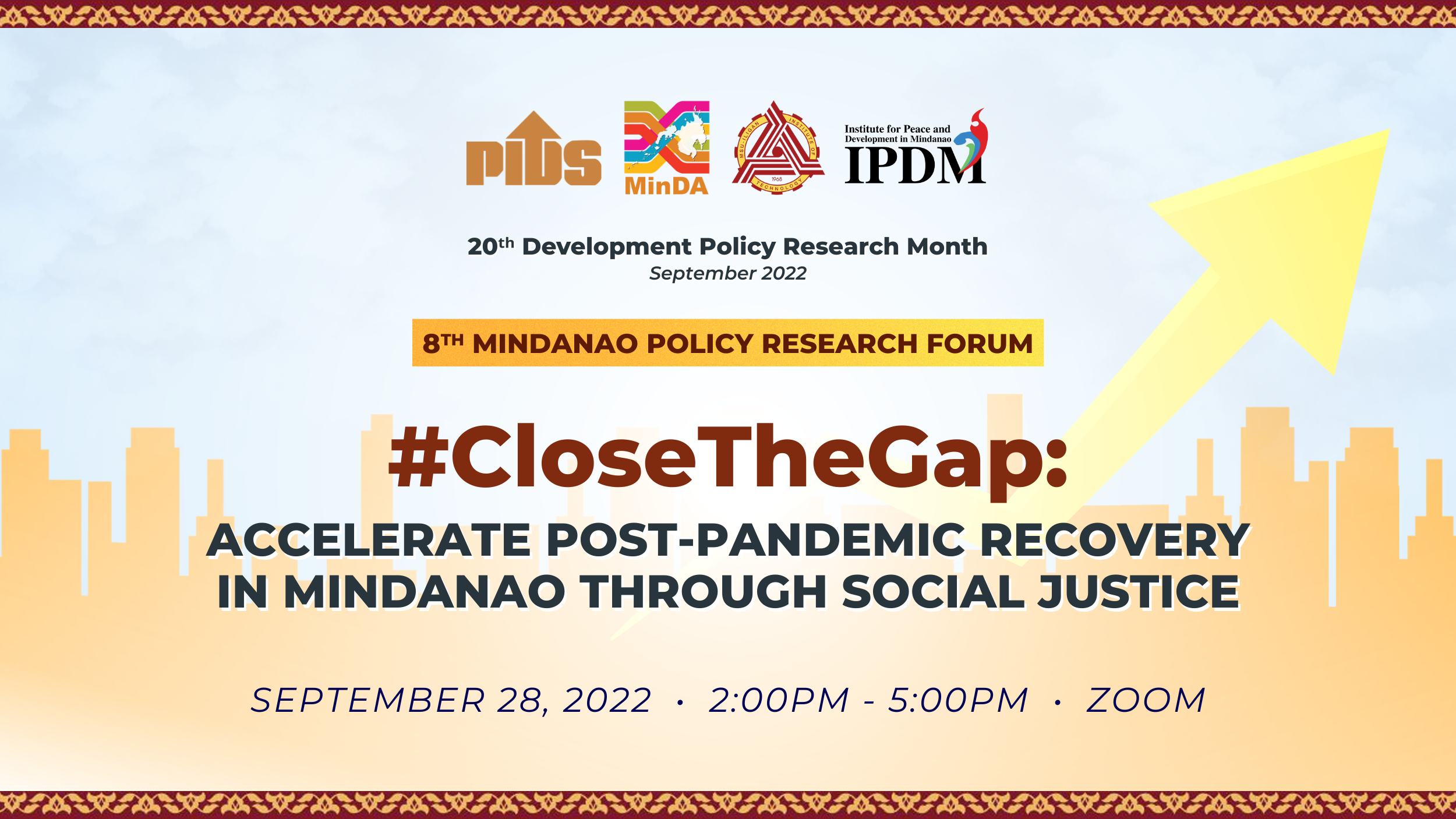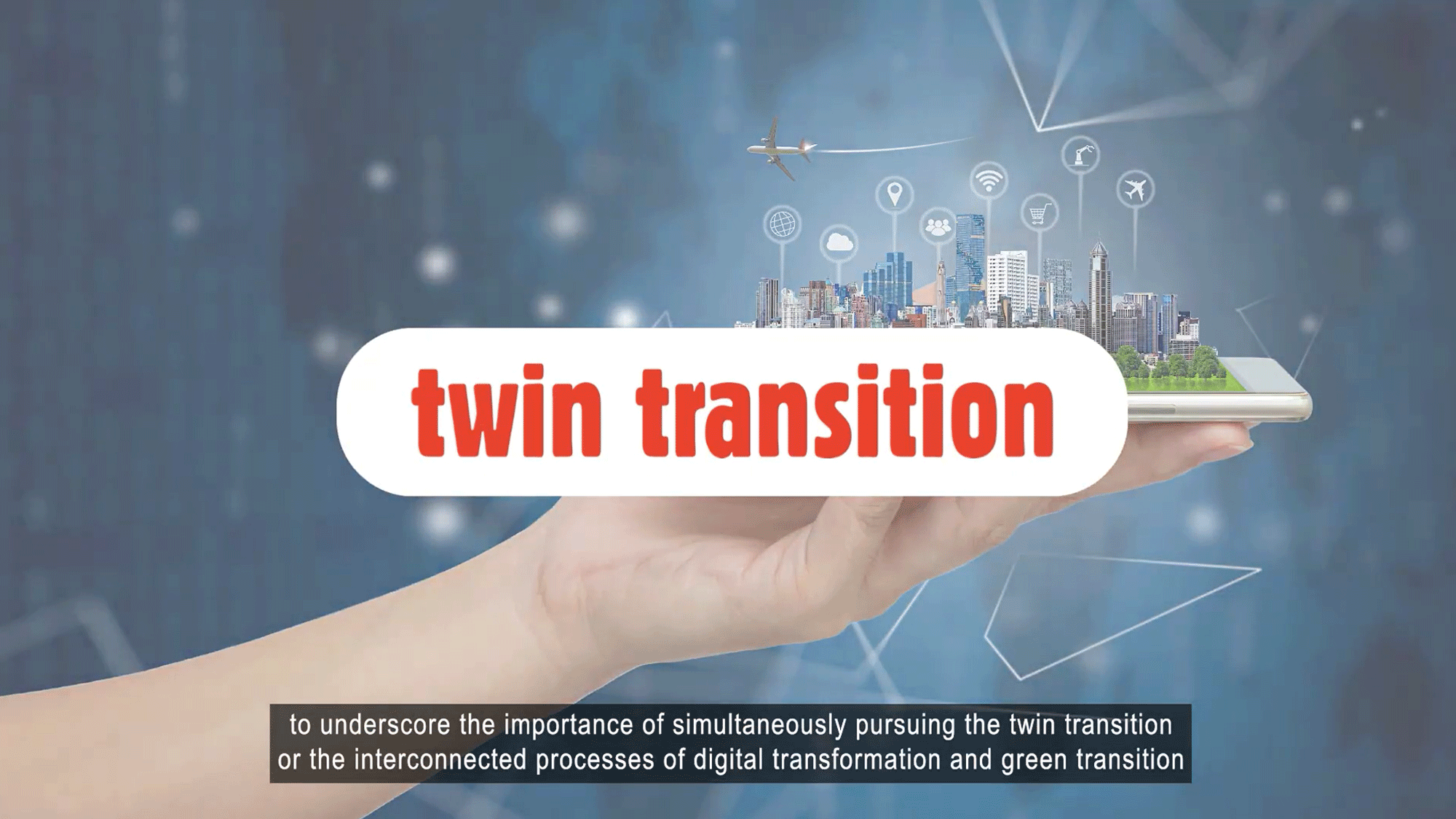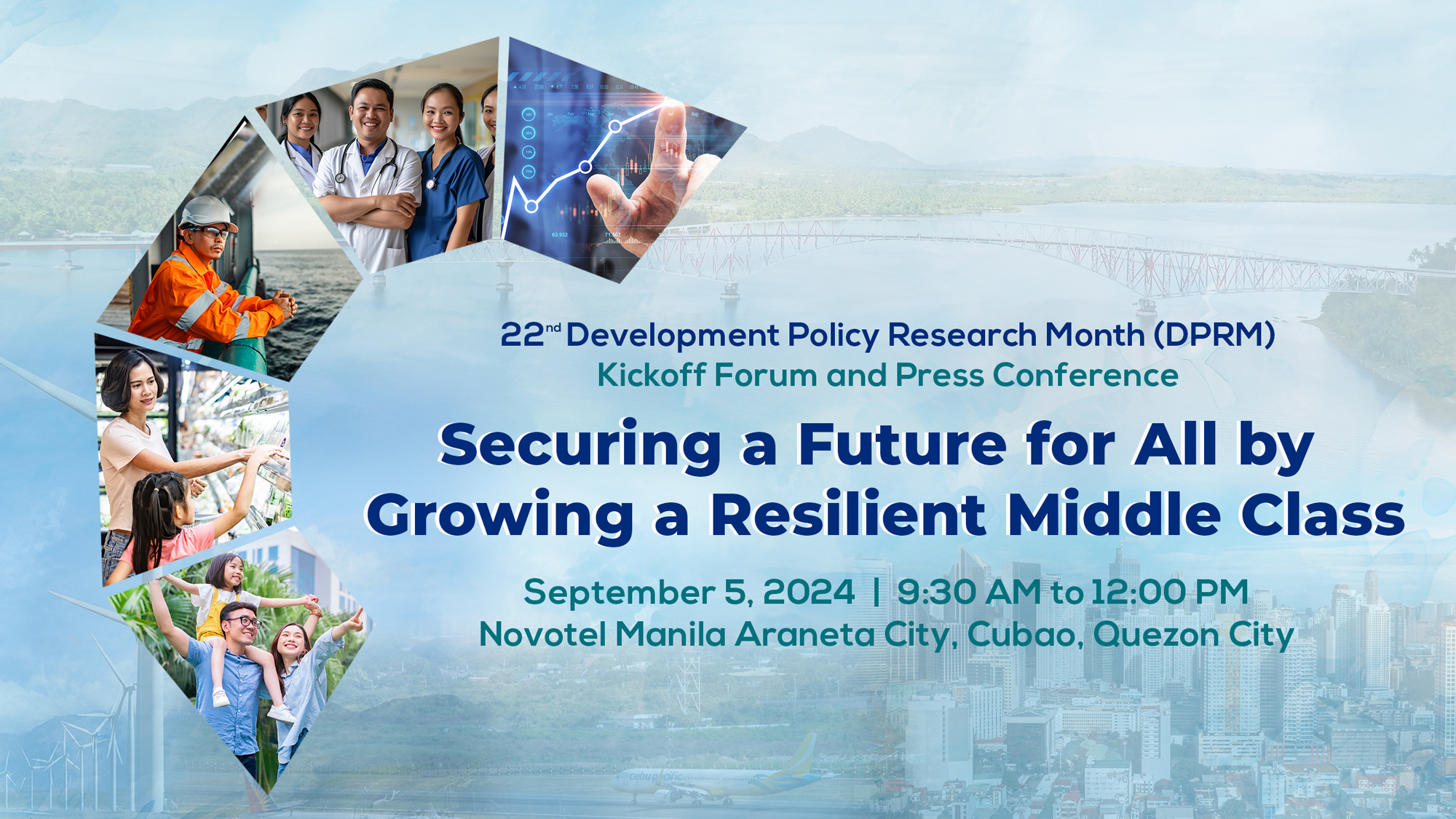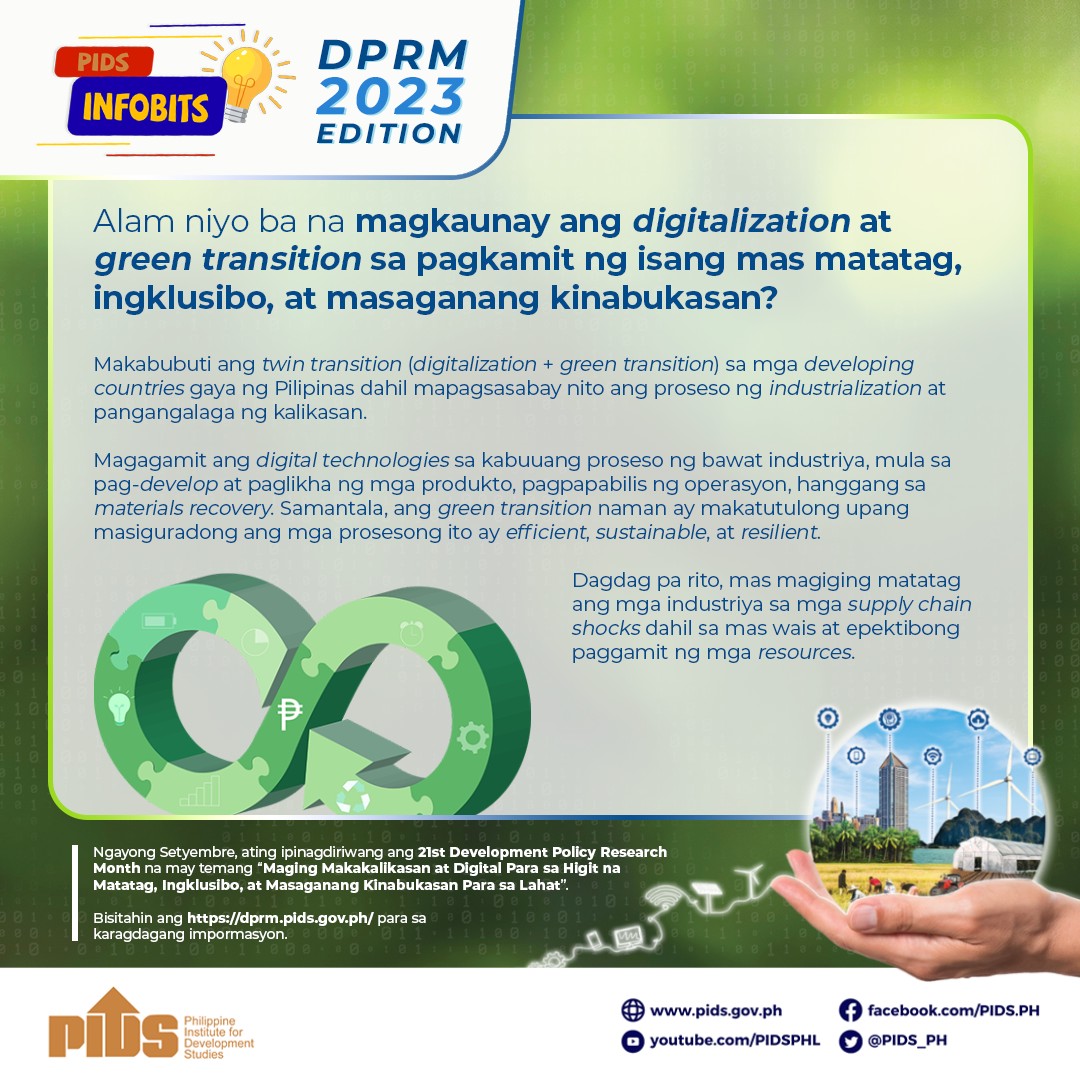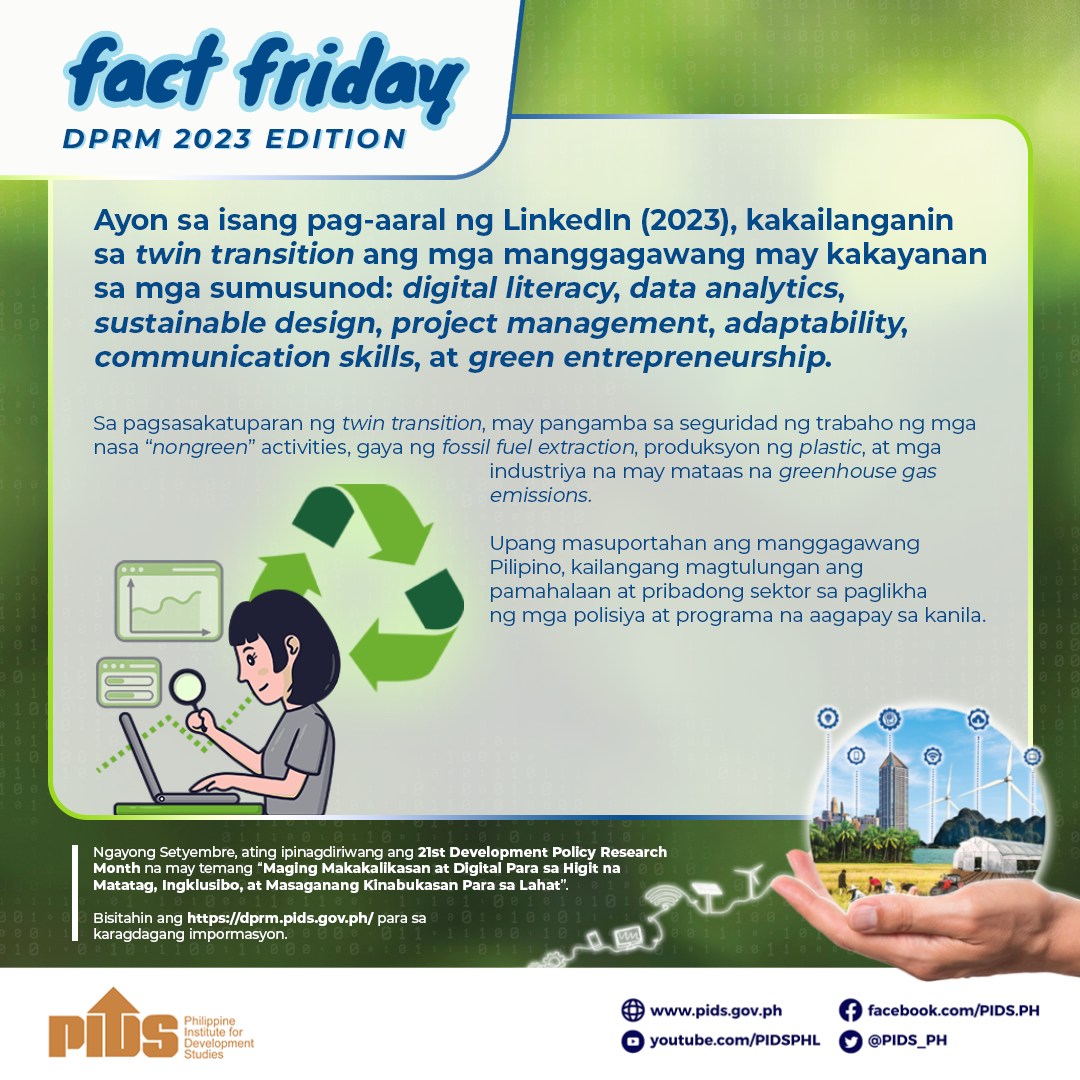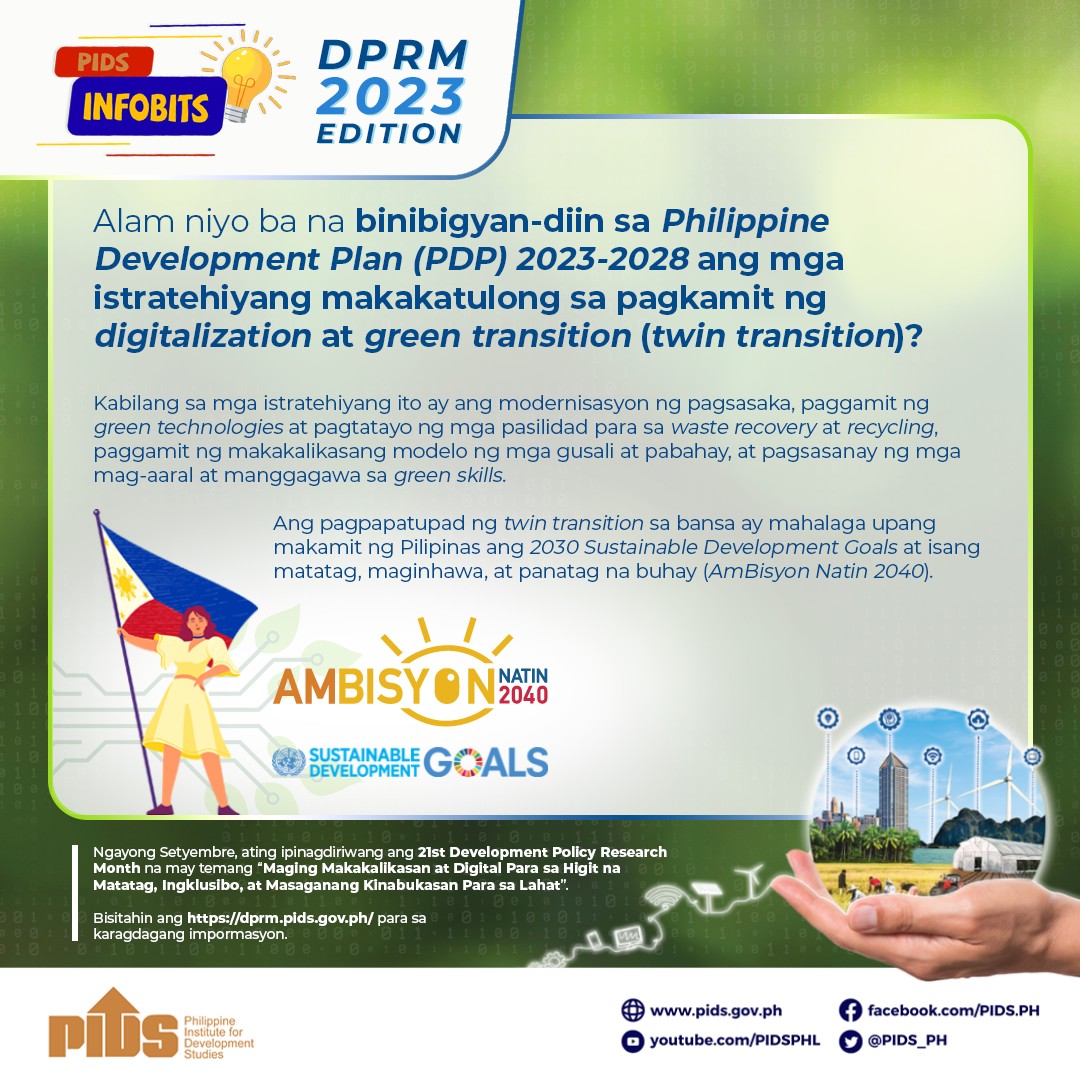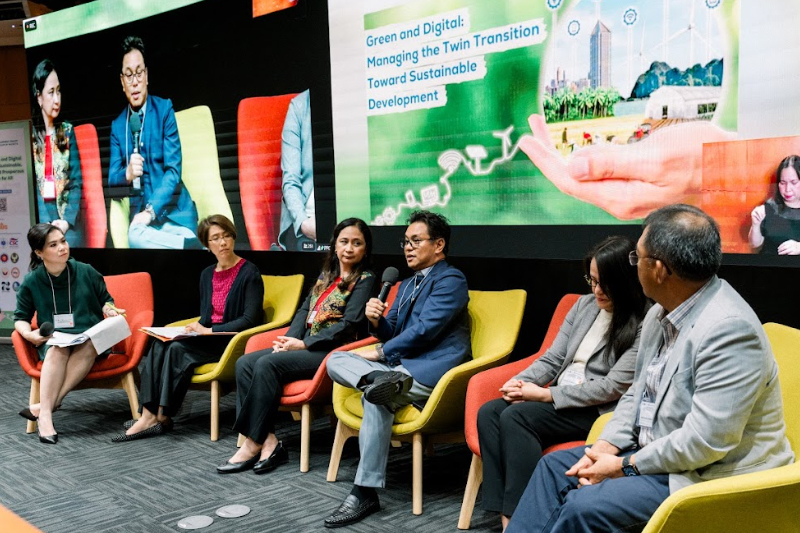
Experts on green and digital transformation emphasized the need for trusted adoption and societal resilience to unlock the full potential of technology for sustainable and inclusive development in the Philippines during the recently held 9th Annual Public Policy Conference (APPC).
The APPC was organized by the Philippine Institute for Development Studies (PIDS) with support from the Asian Institute of Management (AIM) – Andrew L. Tan Center for Tourism and the Bangko Sentral ng Pilipinas (BSP). It is the highlight of the Development Policy Research Month celebration held every September. Discussions centered on the theme, “Going Green and Digital for a More Sustainable, Inclusive, and Prosperous Future for All”.
Speakers presented the impact of the twin transition on trade and industry policies, proposing strategies for enhanced industrial performance in the third session titled, “Reducing the Disruptions to Trade and Industry”.
Founding Executive Director Ming Tan of the Singapore-based Tech for Good Institute emphasized digitalization’s role in ensuring sustainability in the digital economy.
“Governments have a role in driving the private sector to take action through regulations, incentives, and collaboration to bring innovative solutions to the market. Policy innovation and regulatory sandboxes are important to address the rapid pace of technological advancements and their impact on society,” Tan said.
Alexander Cabrera, governor-in-charge of the Management Association of the Philippines’ Environment, Social, and Governance Committee, added that corporate transparency and accountability can help address climate impacts effectively. He encouraged all companies, not just publicly listed ones, to provide sustainability reports as part of the “whole-of-nation approach”.
Deputy Director Rhodora Brazil-De Vera of the BSP Supervisory Policy and Research Department echoed the call for all companies to adopt sustainable practices.
“Big companies should require their supply chains to comply with sustainability measures, even if it may come at a cost. Sustainability and digitalization for micro, small, and medium-sized enterprises or MSMEs are relevant in addressing climate change. We should recognize the potential opportunities and challenges that come with the dual transition and emphasize the importance of considering the impact on small and medium enterprises,” she explained.
Maria Cherry Lyn Rodolfo, Board of Advisors member of the AIM-Dr. Andrew L. Tan Center for Tourism, added that MSMEs in the tourism sector play a vital role in advocating for digital transformation and sustainable practices to enhance efficiency and inclusivity.
Department of Energy Assistant Secretary Mario Marasigan raised the need for external support to facilitate the country’s transition to a sustainable, secure, and affordable energy system. He reiterated the department’s commitment to promoting green and digital transformation in the energy sector and outlined the goals for renewable energy contributions.
Conference panelists also explored the importance of responsible governmental adoption of AI in the fourth session titled “Opportunities and Challenges of Artificial Intelligence (AI) in a World of Dual Transformation”.
Associate Professor Peter Sy of the University of the Philippines-Diliman Department of Philosophy defined “principled AI”, emphasizing human-centered values and fairness as essential components to build trust and realize the potential of AI.
“A principled AI touches on inclusive growth, sustainable development, and the well-being of its users. It should have human-centered values and fairness because we do not want to leave all decisionmaking exclusively to AIs, especially for high-risk operations,” Sy explained.
Isabelle Tingzon, disaster and climate risk data fellow at The World Bank-Global Facility for Disaster Reduction and Recovery, stressed the importance of interdisciplinary collaboration and responsible AI development. “Only use AI when necessary and truly impactful. It is a means, not an end, and should always be informed by societal context and problems,” she shared.
Sophia Falk from the University of Bonn Institute of Science and Ethics emphasized the role of policies in protecting farmers' privacy and data in AI-driven agriculture.
“Amidst the challenges posed by climate change, every sector must not only focus on its ecological impact but also seek resilience in the face of shifting climatic patterns. Digital farming emerges as a potent ally in addressing both imperatives,” Falk said.
The APPC featured four plenary sessions that offered evidence-based insights and perspectives on how developing countries like the Philippines can harness the power of the twin transition or the interconnected concepts of green transition and rapid digitalization.
Watch the conference on PIDS’ official Facebook page (Part 1 and Part 2) and official YouTube channel (Part 1 and Part 2). Photos of the APPC can be viewed here.
For more videos of PIDS events, go to https://pids.gov.ph/videos. ###

